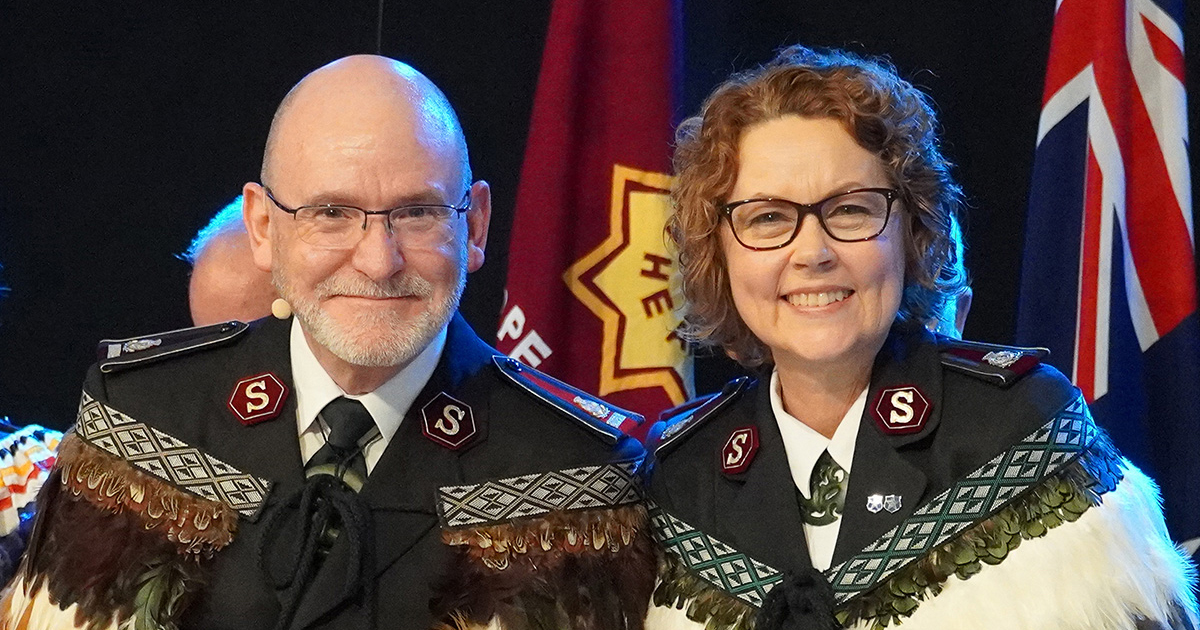It was mid-January when a local news outlet called our thrift store, wondering if we had seen an increase in donations. I wasn’t surprised by the question. Just the night before, I had been reading about the global influx of donations to second-hand stores, thanks to the success of the Netflix series, Tidying Up With Marie Kondo.
Kondo’s message is not new in a world where minimalism is in vogue. But her Japanese-inspired method seems to have struck a chord with westerners. She helps people tidy each area of their home systematically, starting with clothes and ending with sentimental items. Each piece is held and evaluated. Those that “spark joy” are kept, those that don’t are “thanked” and given away.
The result is a less cluttered, more organized house. But the message seems to be that the real reward is a less chaotic, more contented life. While the process seems beautiful in its simplicity, its popularity raises an important question: Why do we feel the need to tidy up?
Writing for The Guardian, Oliver Burkeman suggests that we may be drawn to tidying up because it promises a sense of control over our lives in a world that so often feels out of control. If we can control the clutter in our closets, perhaps the rest of our lives will seem less chaotic.
The hazard with this type of thinking is that we will simply never achieve it. That’s not to say that tidying your house is a lost cause, though Burkeman does suggest that external elements in the form of toddlers, spouses and even our own heightened expectations for ourselves, will always rebel against our best efforts. But absolute control of our lives is not something we should seek, for we are not the ones in control in the first place. God is.
I get it. In light of all that is happening in the world, from mass shootings to natural disasters, it can be difficult to believe there is a sovereign God in control. Closer to home, when we journey through adversity, such as the loss of employment, miscarriage or cancer, we can sometimes wonder, Is God really in control? Where is God in all of this?
It’s true that God has given humans the gift of free will, and that we can control our emotions and actions. But when external forces weigh in on us, we wrestle with God’s part in it. The writer of Lamentations, reflecting on the fall of Jerusalem to the Babylonians in 586 BCE, asks, “Is it not from the mouth of the Most High that both calamities and good things come?” (Lamentations 3:38). Jesus himself affirmed God’s control in tragedy. When Pilate asked, “Don’t you realize I have power either to free you or to crucify you?” Jesus answered, “You would have no power over me if it were not given to you from above” (see John 19:10-11).
Many find these Scripture passages challenging, or even offensive. There are many unanswered questions that follow a period of trial or tragedy. However, if we acknowledge that God is in control in times of success and in times of tragedy, and that in it all he works for our good and his glory, the result will not be control, but contentment. Even the writer of Lamentations declares in the midst of his chaos, “Because of the Lord’s great love we are not consumed, for his compassions never fail. They are new every morning; great is your faithfulness” (Lamentations 3:22-23).
We often seek contentment from the stuff around us. If we could just have a nice house, a reliable car, some pretty clothes, perhaps then we could be content. Kondo’s message mirrors this. During the tidying process, she is still advocating that our stuff be what sparks joy, just a smaller portion of it.
But true contentment does not come from material possessions. True contentment comes from trusting God in all circumstances, in times of plenty and in times of want. There is a peace and intimacy that comes from walking with the Lord through the dark and chaotic days of our lives, trusting that even when we cannot see how, he is in control.
Paul, in his first letter to Timothy, exhorts, “Godliness with contentment is great gain. For we brought nothing into the world, and we can take nothing out of it” (1 Timothy 6:6-7).
A tidy house will not make us content. Though I have to say, Kondo’s folding methods are making my dresser drawers look lovely these days.
Captain Laura Van Schaick is the corps officer at The Salvation Army, A Community Church in Prince Albert, Sask.
Photo: © KatarzynaBialasiewicz/iStock.com
Kondo’s message is not new in a world where minimalism is in vogue. But her Japanese-inspired method seems to have struck a chord with westerners. She helps people tidy each area of their home systematically, starting with clothes and ending with sentimental items. Each piece is held and evaluated. Those that “spark joy” are kept, those that don’t are “thanked” and given away.
The result is a less cluttered, more organized house. But the message seems to be that the real reward is a less chaotic, more contented life. While the process seems beautiful in its simplicity, its popularity raises an important question: Why do we feel the need to tidy up?
Writing for The Guardian, Oliver Burkeman suggests that we may be drawn to tidying up because it promises a sense of control over our lives in a world that so often feels out of control. If we can control the clutter in our closets, perhaps the rest of our lives will seem less chaotic.
The hazard with this type of thinking is that we will simply never achieve it. That’s not to say that tidying your house is a lost cause, though Burkeman does suggest that external elements in the form of toddlers, spouses and even our own heightened expectations for ourselves, will always rebel against our best efforts. But absolute control of our lives is not something we should seek, for we are not the ones in control in the first place. God is.
I get it. In light of all that is happening in the world, from mass shootings to natural disasters, it can be difficult to believe there is a sovereign God in control. Closer to home, when we journey through adversity, such as the loss of employment, miscarriage or cancer, we can sometimes wonder, Is God really in control? Where is God in all of this?
It’s true that God has given humans the gift of free will, and that we can control our emotions and actions. But when external forces weigh in on us, we wrestle with God’s part in it. The writer of Lamentations, reflecting on the fall of Jerusalem to the Babylonians in 586 BCE, asks, “Is it not from the mouth of the Most High that both calamities and good things come?” (Lamentations 3:38). Jesus himself affirmed God’s control in tragedy. When Pilate asked, “Don’t you realize I have power either to free you or to crucify you?” Jesus answered, “You would have no power over me if it were not given to you from above” (see John 19:10-11).
Many find these Scripture passages challenging, or even offensive. There are many unanswered questions that follow a period of trial or tragedy. However, if we acknowledge that God is in control in times of success and in times of tragedy, and that in it all he works for our good and his glory, the result will not be control, but contentment. Even the writer of Lamentations declares in the midst of his chaos, “Because of the Lord’s great love we are not consumed, for his compassions never fail. They are new every morning; great is your faithfulness” (Lamentations 3:22-23).
We often seek contentment from the stuff around us. If we could just have a nice house, a reliable car, some pretty clothes, perhaps then we could be content. Kondo’s message mirrors this. During the tidying process, she is still advocating that our stuff be what sparks joy, just a smaller portion of it.
But true contentment does not come from material possessions. True contentment comes from trusting God in all circumstances, in times of plenty and in times of want. There is a peace and intimacy that comes from walking with the Lord through the dark and chaotic days of our lives, trusting that even when we cannot see how, he is in control.
Paul, in his first letter to Timothy, exhorts, “Godliness with contentment is great gain. For we brought nothing into the world, and we can take nothing out of it” (1 Timothy 6:6-7).
A tidy house will not make us content. Though I have to say, Kondo’s folding methods are making my dresser drawers look lovely these days.
Captain Laura Van Schaick is the corps officer at The Salvation Army, A Community Church in Prince Albert, Sask.
Photo: © KatarzynaBialasiewicz/iStock.com










Comment
On Saturday, June 1, 2019, Ruth Fearn said:
Leave a Comment